Greek Revolution Bicentennial
* all words in bold contain links
Don't forget to listen to my podcast episode about this!
March 25th 2021 marks the 200 years since the Greek Revolution against the Turks was declared back in 1821...
Because of that year, the Greeks usually refer to the entire war as '1821' or '21'.
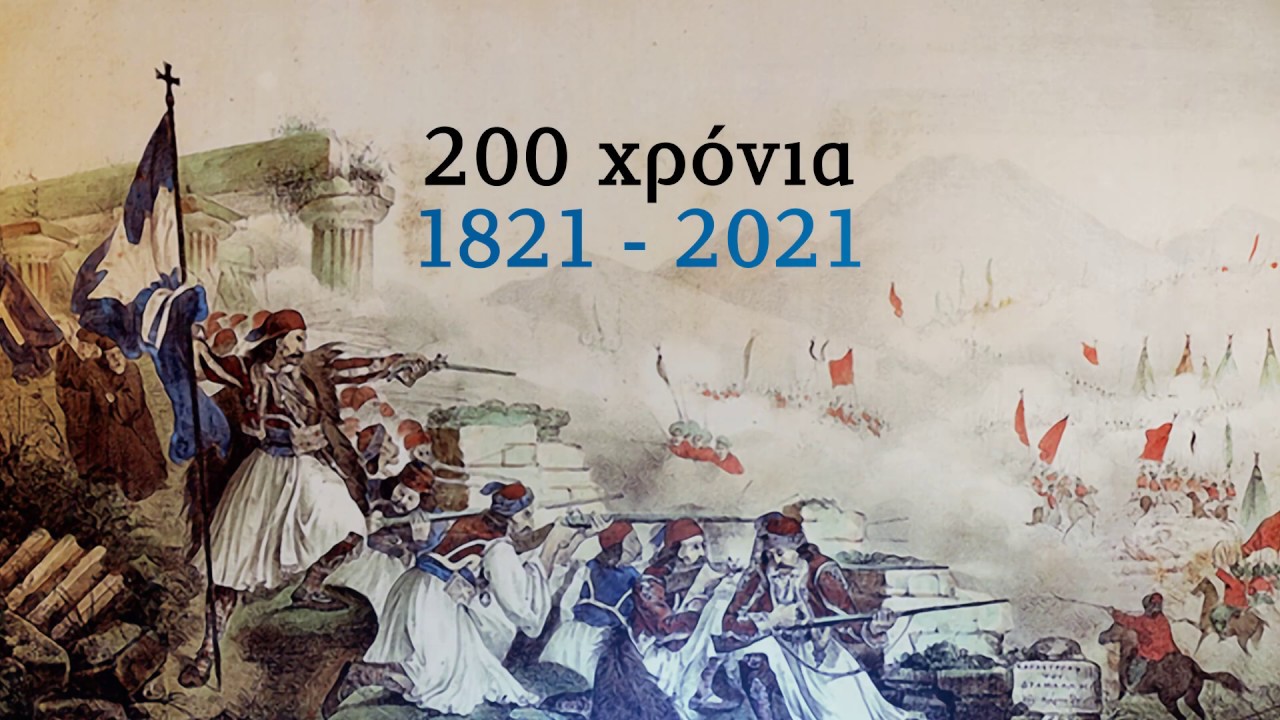
Most parts of Greece were under Turkish occupation, some even since the 14th cent. and up until 1912, such as Macedonia (northern Greece).
The Ionian Islands were primarily under the rule of Venice, which also was a big naval power at the time and rival to the Ottomans. Keep in mind that most mediaeval fortresses of Greece (yes, that is a thing!) were built by the Venetians, who nevertheless demolished plenty of ancient buildings and pillaged who knows how many relics (thank you, Venetians #not).
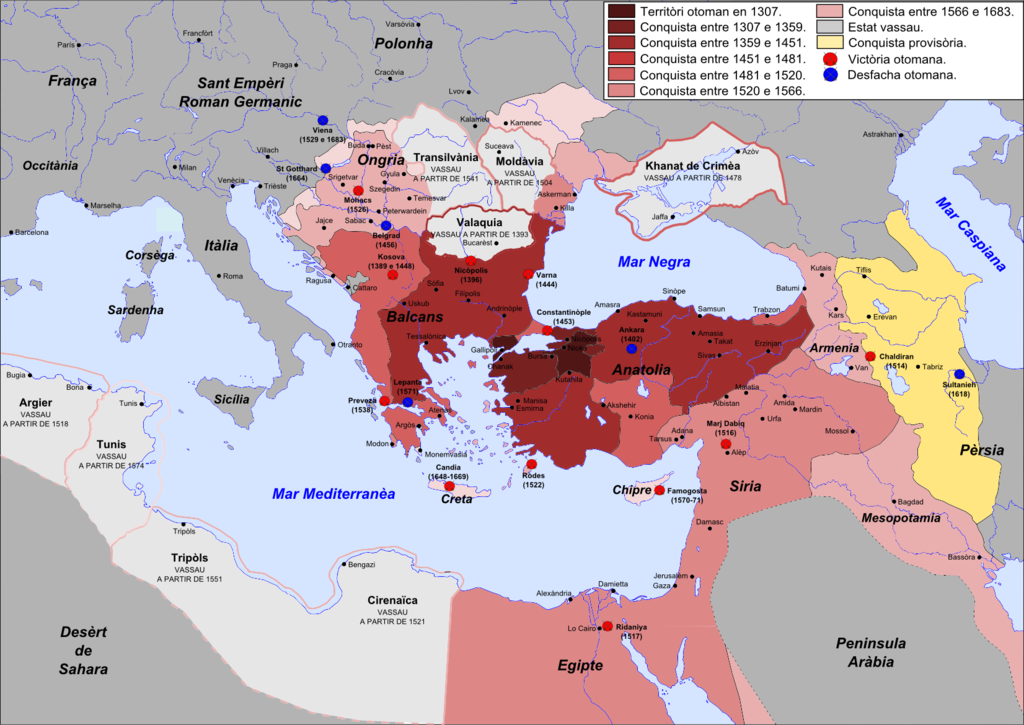
Greece, as part of the Ottoman Empire, would have looked very similar to a muslim country, and if it wasn't for the Greek antiquities and churches, it wouldn't be very easy to tell the difference.
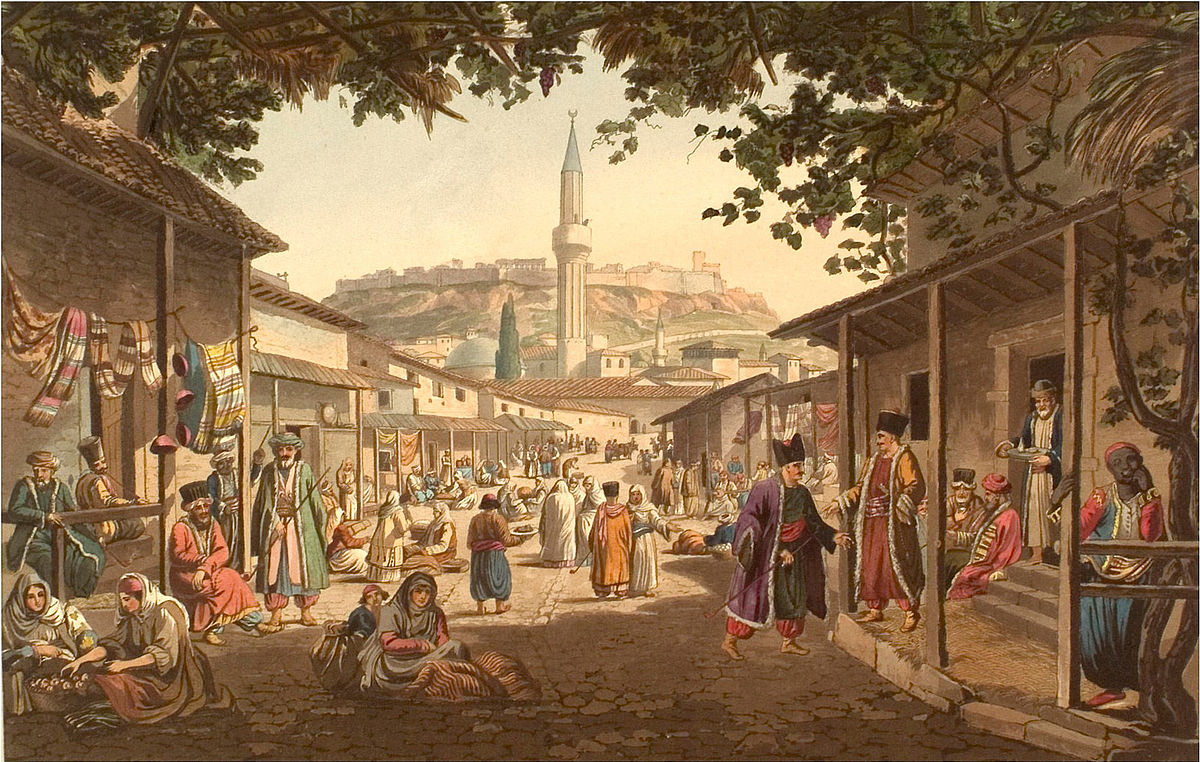
the Acropolis in the background
Some parts that were inhabited by the Greeks for milennia were never recovered, such as Constantinople (founded by the Greeks in the 7th cent. BC) aka Istanbul (from Greek is tin polin = to/in the city), which fell in 1453. That is the year that symbolically marks the beginning of Greece's Turkish Occupation.
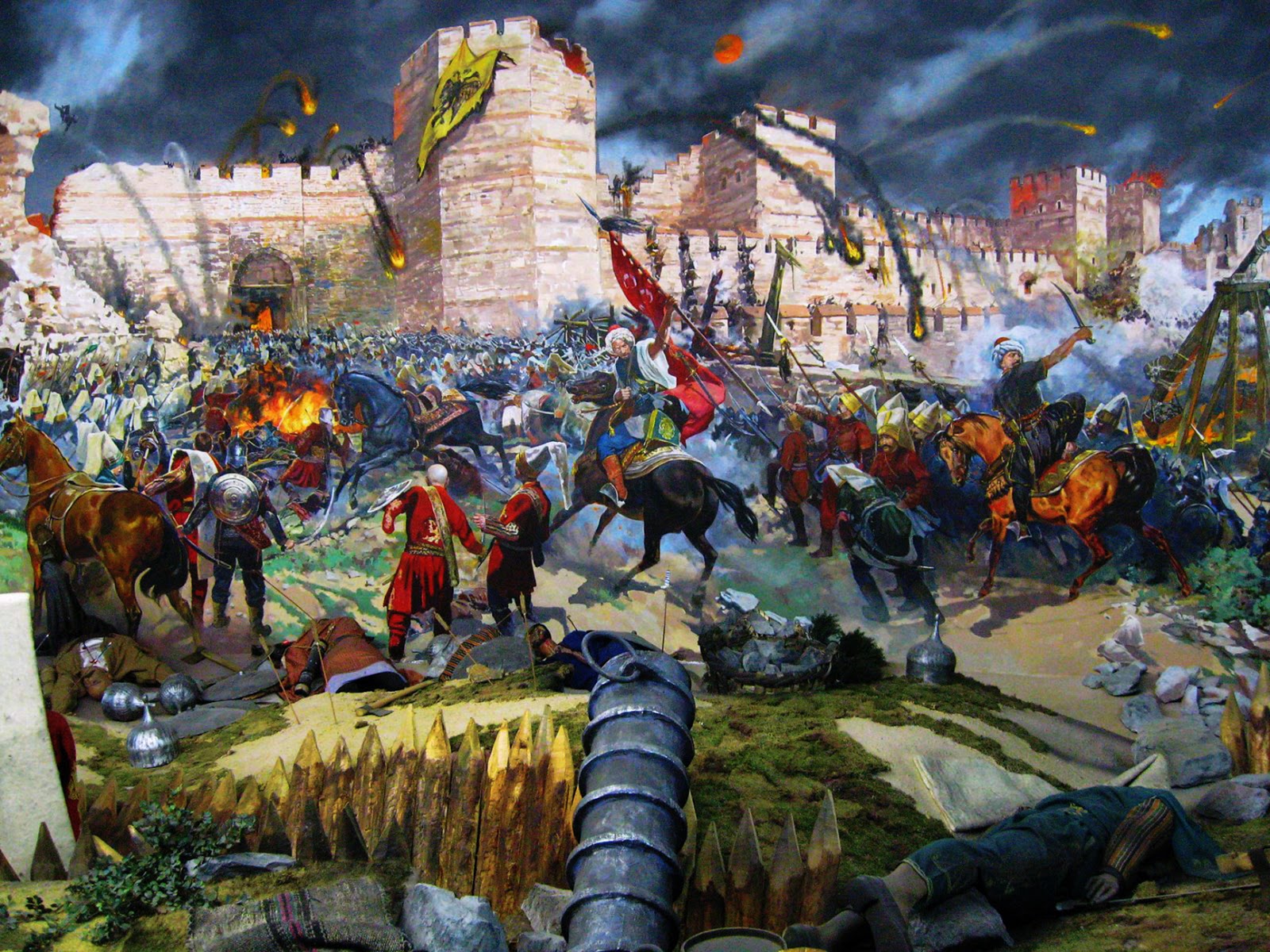
Another region that wasn't liberated (only briefly) was Asia Minor/Ionia with cities like Ephesus, Smyrna etc. Some parts of Greece were even re-invaded by the Turks later, such as Cyprus (the northern part is still occupied), preventing the island to unite with the rest of Greece.
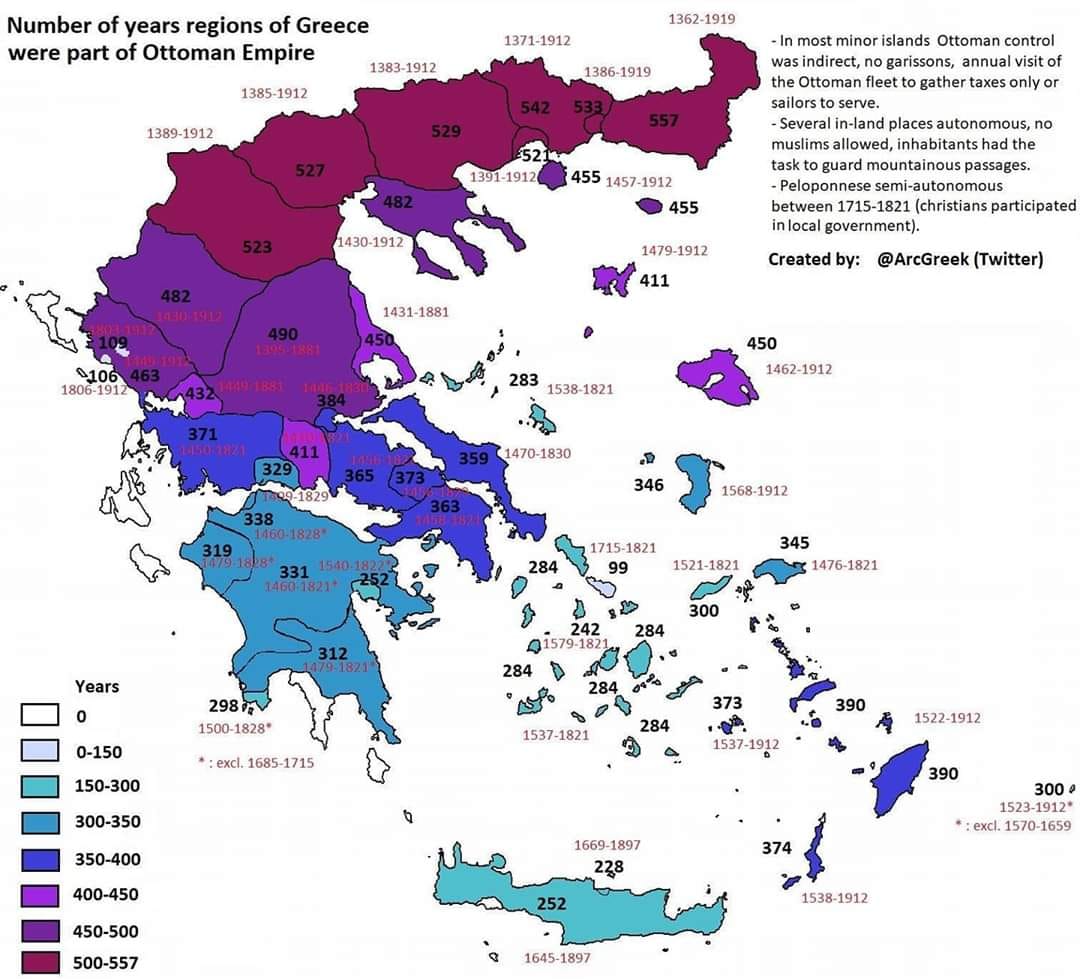
were occupied by the Turks.
Although the 19th century was a time that European empires and kingdoms didn't favour uprisings, over time the Greeks' persistence and sacrifices managed to overturn this negative stance.
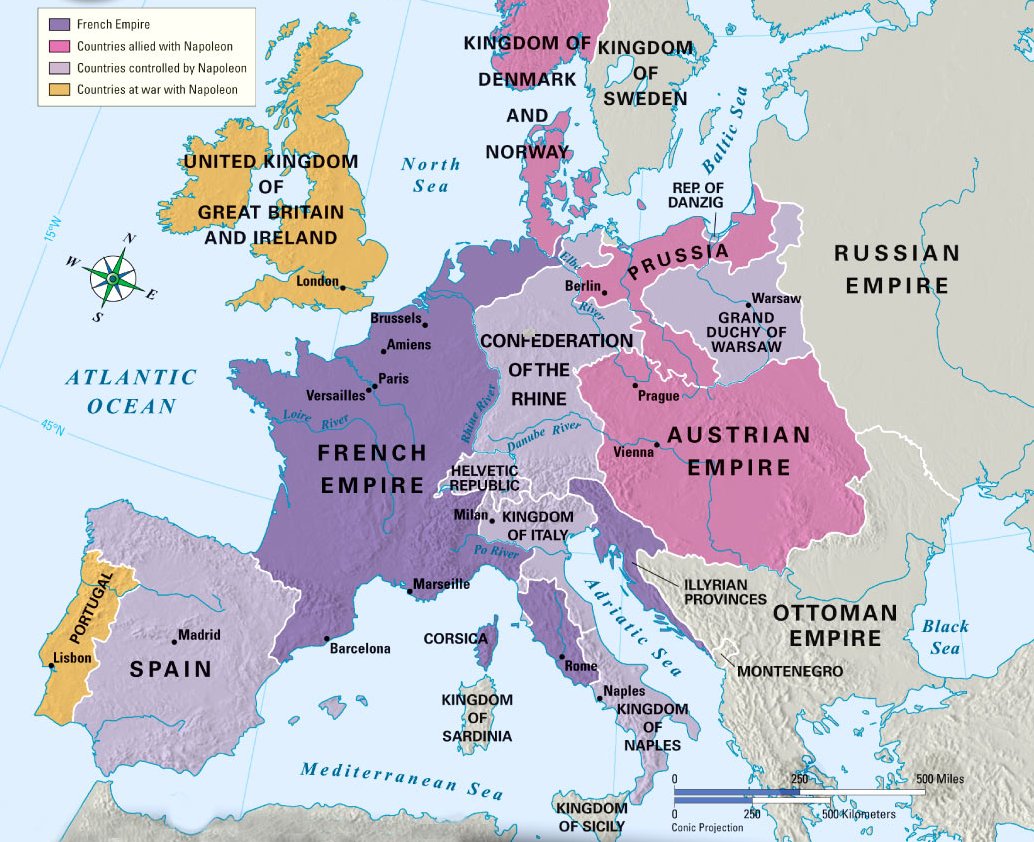
Of course the turkish attrocities in order to supress the revolution contributed to that. Famous examples were the Siege of Missolonghi and the Massacre on the island of Chios,
where out of 117,00 Greeks, about 50,000 were sold into slavery, 23,000 managed to flee and 42,000 were killed.

Things like that created sympathy for the Greeks, with a movement that was unique in history and was called Philhellenism ('love for the Greek culture and Greece'). Thousands of people from many countries, even from the USA, aided the Revolution financially, they wrote poems about it (e.g. Victor Hugo - the Les Misérables guy) or even joined arms with the rebels.
One of the most famous ones was British poet Lord Byron, who even died in Greece and despite his wish was not buried here (Athens honoured him with a beautiful statue, and a street and a suburb named after him!).
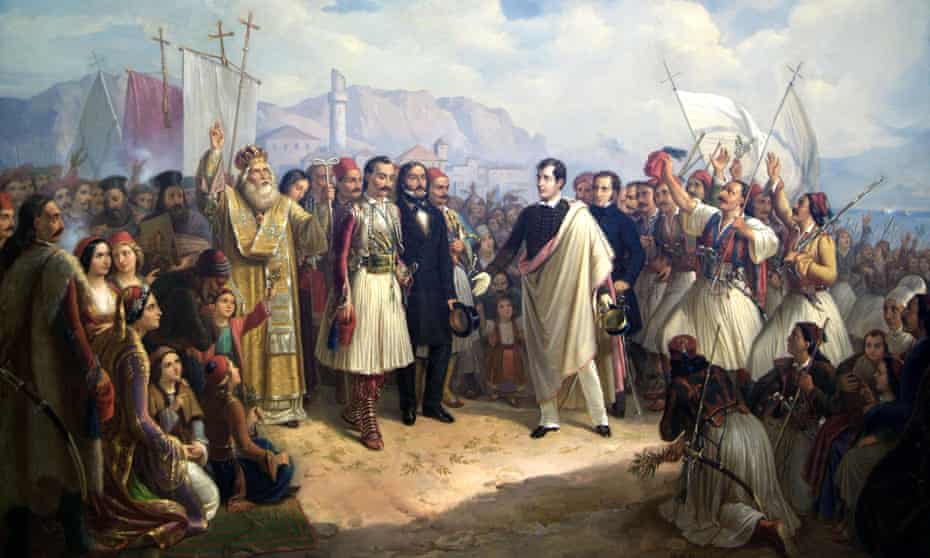
In 1827, the French, Russian and British fleets even ended up fighting the Turks in the Battleship of Navarino resulting in the defeat of the Turkish-Egyptian fleet (Egypt was also occupied by the Turks). Nevertheless, back home, the western European governments were generally displeased, and British admiral Codrington, for example, spent much time defending his actions in Greece...

Some of Greece's national heroes from that era are:
Kolokotronis (considered as the leader of the Revolution; his statue is in front of Athens' National Historical Museum)
Bouboulina (one of the few women to participate actively)
Diakos (impaled by the Turks)
Makriyianis (he lived near the Acropolis Museum so the area is named after him; his statue is a few metres from the Museum)
Karaiskakis (his statue is near the Panathenaic Stadium; the stadium of Olympiacos also bears his name)
Kanaris (fire ship captain)
and many many more.....
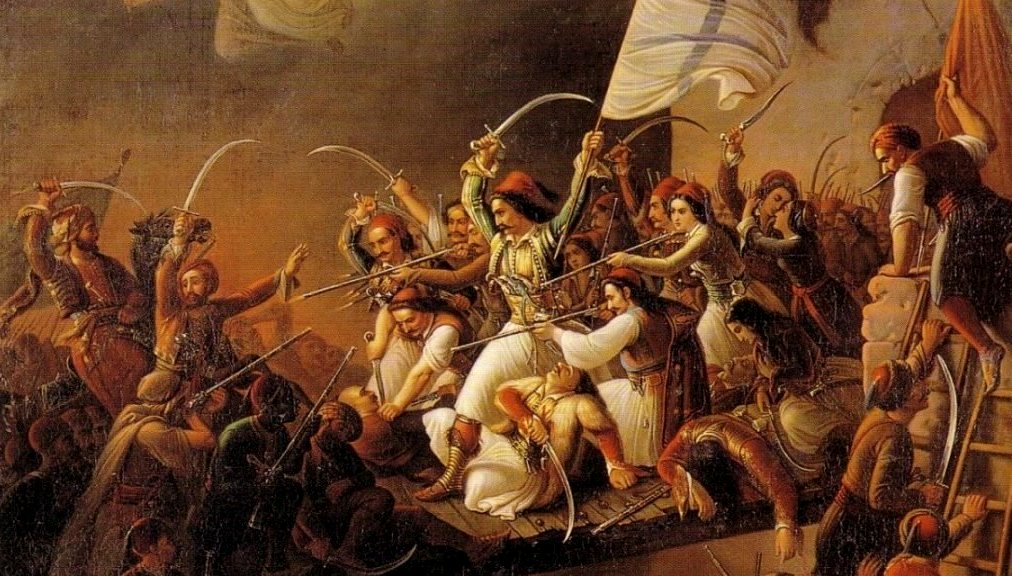
(from a painting by Theodoros Vryzakis)
The fight for freedom lasted until 1829 for the heavily outnumbered and generally disorganized (at least in the Western European sense) Greeks but eventually Greece was recognised as an independent state in 1830, becoming thus the first nation to make it out of the Ottoman Empire (followed later by others, such as Serbians, Bosnians, etc.).
It would take Greece many more years though, and plenty of wars, to eventually obtain its current form.
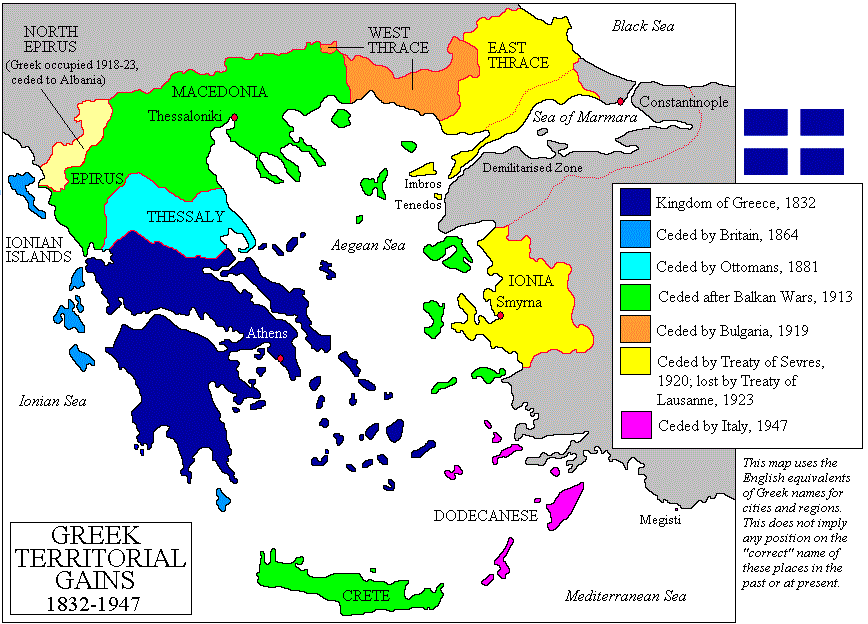
The above map shows you the brief period during which the Greeks were in command of a part of Ionia, which they managed to take back from the Turks. Greece would lose the war with Turkey, which the Turks ironically call 'War of Indepence'... You can hear more about this war here.
* The Greek Revolution was among the first national revolutions in modern Europe (the French Revolution was a social one) but the first successful one, leading to the abolition of slavery already before Greece had become independent!


